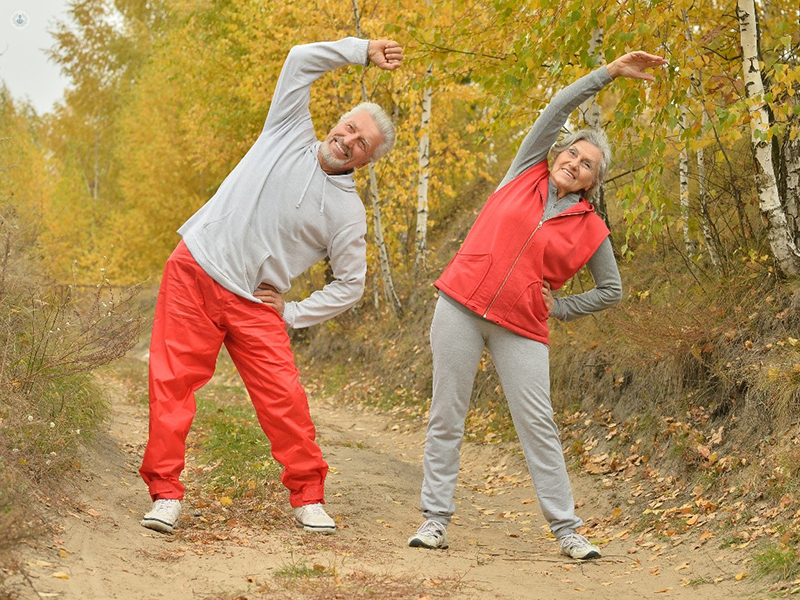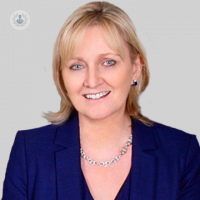Exercising with arthritis
Written by:Anyone with arthritis will know that exercise plays a crucial role in managing the pain and stiffness associated with their condition. Moderate daily exercise can relieve symptoms of arthritis and improve mobility and functionality. However, the pain associated with arthritis can make it difficult to exercise and some people may avoid exercising altogether.
However, avoiding exercise and inactivity only worsens the symptoms of arthritis and makes managing it more difficult. Dr Stephanie Barrett is here to answer some questions about exercising with arthritis.

How much exercise should I be de doing every day?
Ideally, you should aim to do 30 minutes of exercise five days a week, and aim to spend at least 30 minutes a day moving on your feet. You can even break down the length of time you’re exercising into smaller chunks of ten minutes because it’s important to strengthen your joints and to keep them moving.
What should I do if I have pain before working out?
You might be used to mild pain and discomfort on a daily basis, but as you begin to exercise that pain should gradually decrease. It’s recommended that if you experience moderate pain in a particular joint or area, work out other joints for a few days and leave these joints to rest. Start gently and increase the amount of time you exercise little by little.
What if I experience pain while working out?
If any exercise is causing pain, it’s important to stop that exercise, as it could indicate inflammation or injury. If you experience severe inflammation that doesn’t subside after rest, ice or anti-inflammatories for a few days, seek medical advice.
Managing pain after a workout
If you’re still sore an hour after workout sessions, then it may be time to re-evaluate your exercise regime. You should feel that your muscles have done some work, but you shouldn’t be in pain or exhausted. Try exercises that put less pressure on the joints like swimming and water aerobics.
You can also try lowering the intensity of your workout. Long-lasting pain could be a sign that you’re pushing yourself too hard. Avoid unnecessary pain by exercising within your limits.
Exercise can be beneficial for people with arthritis if it is done with the support of physiotherapists or occupational therapists, and as long as it doesn’t cause pain or discomfort. Some benefits of exercise for arthritis patients include:
- Increased flexibility
- Improved mobility
- An increase in energy levels
- Better sleep
- Improved balance, posture and strength
- Help with maintaining a healthy weight
Most of the time overuse injuries experienced from exercising can be managed with hot and cold packs, rest or even physical therapy like physio or occupational therapy. However, if you’re in a lot of pain 24 hours after a workout, seek medical help as soon as possible.
Speak with a rheumatologist like Dr Stephanie Barrett about the benefits of exercise for arthritis and if you would like to build an exercise regime to fit your needs and abilities.


